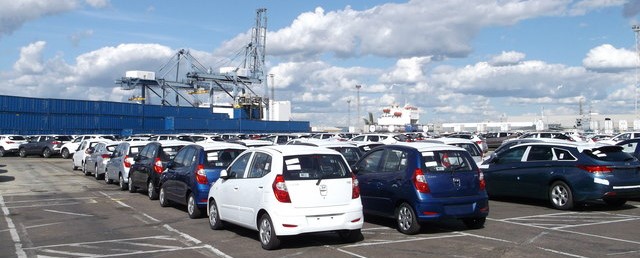Supporting Industry Post-Brexit: Supply chains and the automotive industry
Justin Protts, May 2017

As well as being under pressure to develop an industrial policy which will support growth in an industry with 169,000 people employed in manufacturing vehicles and which supports around 814,000 jobs across the UK, the government will need to ensure policies are in place to help the automotive industry adapt in light of the UK’s vote to leave the EU. On leaving the single market and customs union, issues such as rules of origin, customs delays, tariffs and regulatory diversion all have the potential to harm automotive production, which is dependent on a global supply chain. These are concerns that will be shared by all exporting manufacturing industries and those which are part of, or rely on, supply chains that extend into the rest of the EU.
This report examines what lessons can be learnt from the automotive industry as a current manufacturing success story with a growing domestic supply chain, high productivity, and strong growth, and how government could use its new industrial strategy to support manufacturing as the UK prepares to leave the European Union.
The report reviews how the automotive industry has reacted to the UK’s vote to leave the European Union, and the government’s decision not to seek single market membership or retain the Common External Tariff. It also identifies the primary challenges and opportunities for the industry post-Brexit.
In light of these challenges, we review the support the automotive industry has received and find that UK policies in recent years have been highly successful, encouraging strong growth in domestic and export markets. This has been driven by investment that has resulted in the growth of domestic supply chains, supporting productive jobs and a creating a more stable and sustainable environment for a vital UK industry. The creation of the Automotive Council in particular has allowed for continuous dialogue between industry and government and encouraged productive business-led investments.
As part of the effort to build a new industrial strategy it is essential the government listens to calls for investment in the UK automotive supply chain. We recommend that the government invests across the UK’s manufacturing industries either through the expansion of the Advanced Manufacturing Supply Chain Initiative or through new substantial supply chain initiatives that provide support for all manufacturing industries across all regions of the UK. Such investment should be accompanied by a more prominent role for UK industry-government bodies which should aim to replicate the success of the Automotive Council, in areas such as chemicals, pharmaceuticals, aerospace, defence, and power generation, by encouraging targeted and productive investment. Such a policy should encourage the Department for Business, Energy and Industrial Strategy to engage continually with industry bodies and encourage business-led investment by government in UK manufacturing.
The example of the automotive sector shows that such investment can have a broad positive impact on supply chains and could help to secure and grow the UK’s manufacturing base.
Download PDF